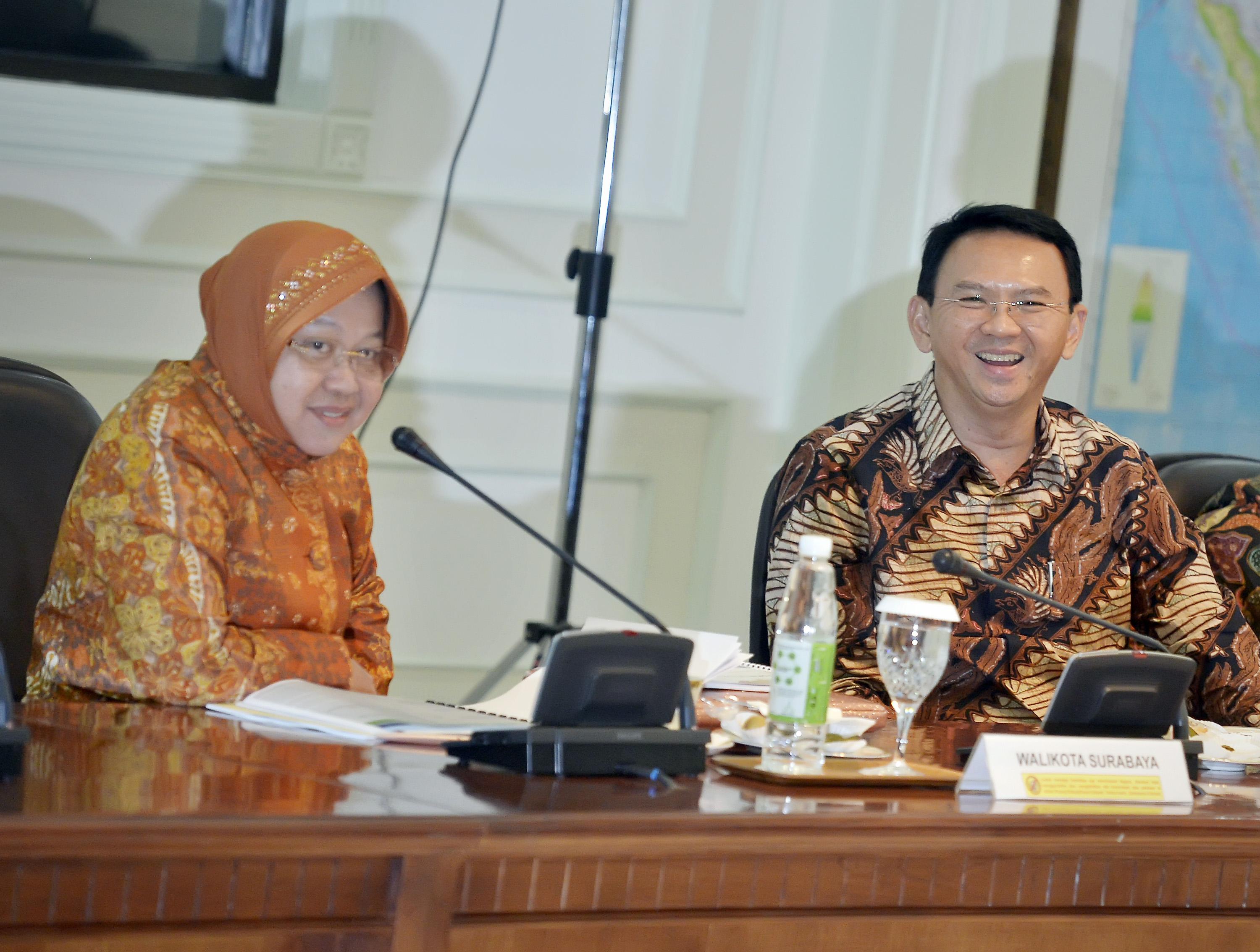In challenging Ahok, how can Risma's success in Surabaya inspire Jakarta?
Bareksa • 18 Aug 2016

Gubernur DKI Basuki Tjahaja Punama (kanan) bersama Walikota Surabaya Tri Rismaharini (kiri) mengikuti Rapat Terbatas yang dipimpin Presiden Joko Widodo bersama Menteri Kabinet Kerja membahas Penilaian Standar Bisnis di Kantor Presiden, Jakarta. ANTARA FOTO/Yudhi Mahatma
Economic growth in Surabaya reached more than 7 percent per year from 2010 to 2014
Bareksa.com - thejakartapost.com - Surabaya Mayor Tri Rismaharini is considered a possible rival to incumbent Jakarta Governor Basuki "Ahok" Tjahja Purnama in the 2017 gubernatorial election.
Many consider the Indonesian Democratic Party of Struggle (PDI-P) member the only possible candidate to compete face-to-face with Ahok.
Reigning over Indonesia's second-largest city for six years, Risma has transformed the formally drab city of Surabaya into a well-managed green metropolis. The capital of East Java has become more prosperous in terms of economic growth. How did Risma make it possible?
Risma became the mayor of Surabaya on Sept. 28, 2010, succeeding Bambang Dwi Hartono who is now her deputy. The 54-year-old leader is the first directly elected mayor of Surabaya.
Trade, hotels and restaurants are major contributors to the city's coffers, contributing 45 percent to total regional revenue. Processing companies and other sources contribute 20 to 25 percent to the capital's income.
Risma has managed to increase the city's revenue despite there being no significant changes in economic sources. In 2014, the local government booked Rp 3.3 trillion in revenue, triple 2010's income of Rp 893 billion. The tax policy and Surabaya's significant economic growth have supported the capital's financial performance.
Chart: Surabaya Local Internal Revenue (Rp billion)
source: (BPS/Bareksa)
Economic growth in Surabaya reached more than 7 percent per year from 2010 to 2014, beating Indonesia's overall average economic growth of 6 percent. High economic growth showed a sharp increase in business, which translated into higher revenue.
Risma issued mayor regulations No. 56 and No. 57 in 2010. The two regulations became legal bases to increase billboard tax to 25 percent and to levy additional taxes on particular products, such as cigarettes.
The regulations increased advertising tax in Surabaya to reach more than that in Jakarta. The policy threatened Risma's position as mayor. The legislative council exercised its right of inquiry to depose of the mayor because of her failure to include regional figures in discussing and preparing the regulations.
Although causing controversy, the policy increased city revenue by 7.13 percent in 2011. Regardless of her achievement in supporting economy growth, many have questioned her ability to govern the more complex Jakarta, as the capital city.
"She performed well, but Surabaya is a small city the size of South Jakarta," Ahok said. (dan)